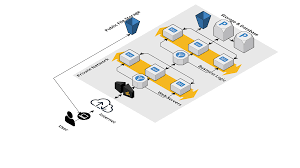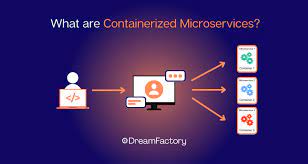In the ever-evolving landscape of technology, web hosting stands at the forefront, playing a pivotal role in ensuring seamless online experiences. As we delve into the future, hosting is poised to undergo transformative changes, incorporating cutting-edge trends and innovations. In this article, we explore eight key developments that promise to shape the future of hosting.
Cloud-Native Hosting:

The shift towards cloud-native hosting is undeniable. Cloud technology offers scalability, flexibility, and enhanced performance, allowing businesses to adapt to varying workloads seamlessly. Expect hosting providers to increasingly leverage cloud-native architectures, enabling users to scale resources on-demand while optimizing costs.
Edge Computing:

As the demand for low-latency applications grows, edge computing emerges as a game-changer. Hosting services are moving closer to end-users, reducing latency and enhancing the overall user experience. This trend is particularly crucial for applications like augmented reality, virtual reality, and the Internet of Things (IoT).
Containerization and Microservices:

Containerization, with technologies like Docker and Kubernetes, is reshaping the hosting landscape. This approach allows for the efficient deployment and management of applications, promoting scalability, portability, and simplified maintenance. The future of hosting will witness a surge in containerized and microservices-based infrastructures.
Serverless Computing:

Serverless computing eliminates the need for managing servers, allowing developers to focus solely on code. This paradigm shift in hosting facilitates automatic scaling, reduced infrastructure management overhead, and cost efficiency. Expect hosting providers to offer more serverless options to meet the demands of agile and scalable application development.
Artificial Intelligence (AI) Integration:

AI is making its mark on hosting by optimizing resource allocation, enhancing security, and improving overall system performance. AI-driven automation streamlines tasks, predicts potential issues, and ensures proactive problem resolution. The integration of AI technologies into hosting services will become increasingly prevalent.
Blockchain-Powered Hosting:

Blockchain technology introduces a new level of security and transparency to hosting. Decentralized hosting solutions built on blockchain offer increased resistance to data breaches and unauthorized access. The future may witness the rise of hosting platforms that leverage blockchain to enhance security and data integrity.
Green Hosting:

Sustainability is a growing concern, and the hosting industry is not exempt. Hosting providers are increasingly focusing on eco-friendly practices, utilizing renewable energy sources and implementing energy-efficient technologies. Green hosting is set to become a standard as environmental consciousness continues to rise.
Cybersecurity Advancements:

With the rising frequency and sophistication of cyber threats, hosting services are placing a greater emphasis on cybersecurity. The future of hosting will involve advanced encryption, robust firewalls, and proactive threat detection mechanisms to ensure the security and integrity of hosted data.
Conclusion:
As we peer into the future, the hosting landscape promises a myriad of exciting developments. Cloud-native architectures, edge computing, containerization, serverless computing, AI integration, blockchain-powered hosting, sustainability, and cybersecurity advancements are the key trends shaping the future of hosting. Adapting to these innovations will not only ensure the optimal performance of digital assets but also position businesses at the forefront of the ever-evolving online landscape. Stay informed, stay agile, and embrace the future of hosting.


